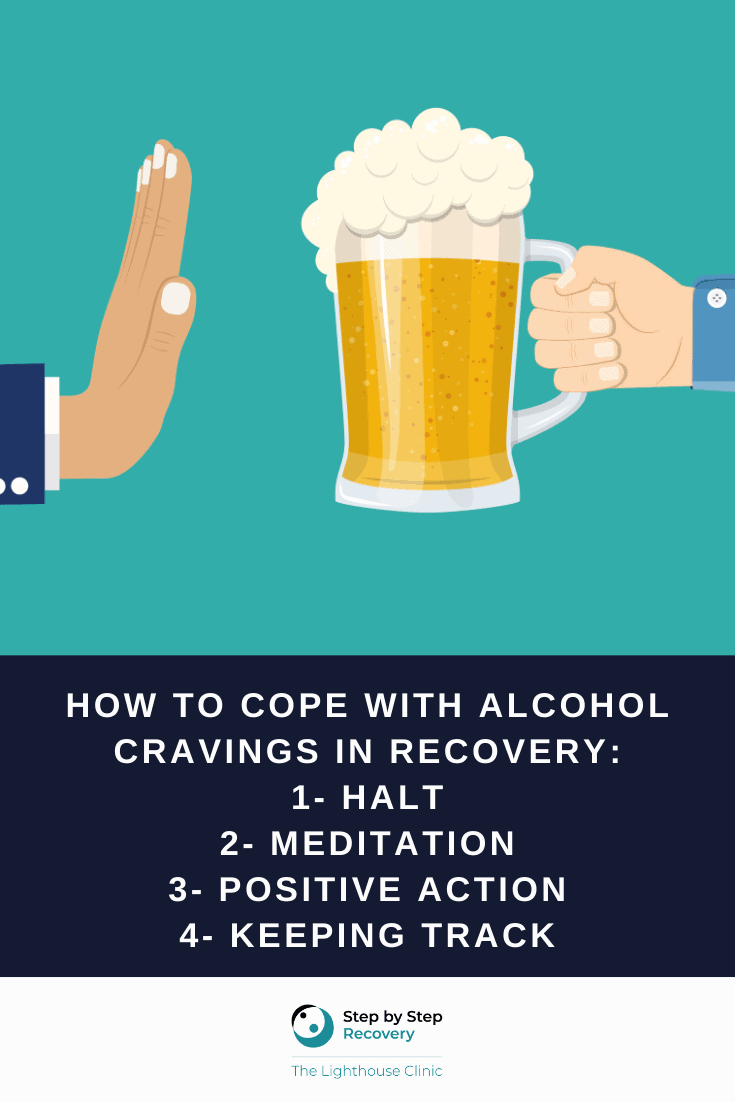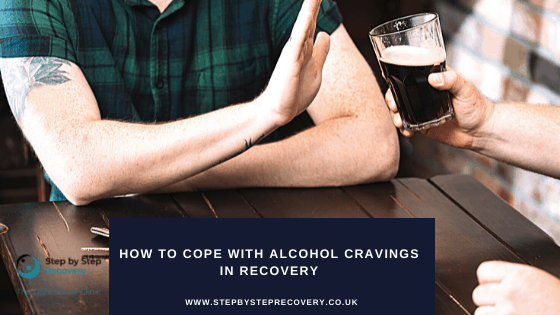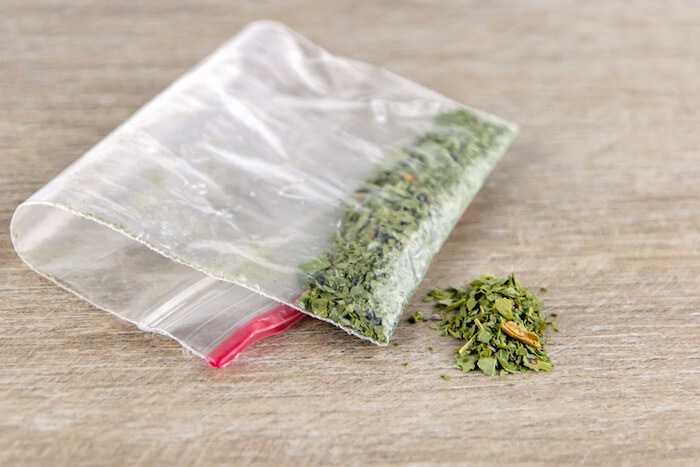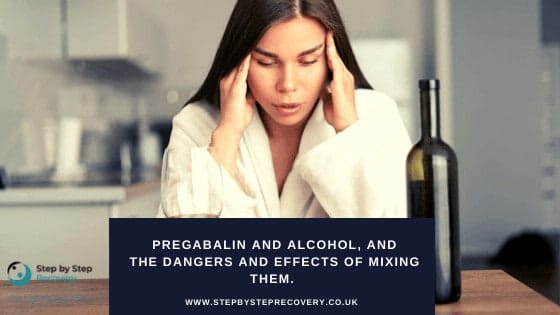Updated September 2022
Alcohol addiction doesn’t go away after treatment, and in early recovery, the urge to drink can be powerful. Self-care and self-awareness are two key components for dealing with alcohol cravings and navigating your life in recovery. By taking better care of yourself and becoming more aware of your behaviours, you can avoid returning to previous harmful coping strategies.
Leaving rehab or an alcohol addiction treatment programme is daunting. After all, there is no longer the structure and support that has helped you to stop drinking alcohol. And the stress of real-life problems often feels more intense in those first few months when you return to your everyday responsibilities.
In early recovery, it is important to accept that you will face situations and experience feelings that might trigger your alcohol cravings. The most critical thing to remember about cravings is that they will pass.
Read on to find out what you can do to prevent them and help you cope when they happen.
1. HALT
In early recovery, the word HALT is a handy acronym for hungry, angry, lonely, and tired. When in doubt, you should pause and ask yourself, “am I experiencing any of these feelings?” This short word can be a powerful reminder to keep your system emotionally and physically regulated, which can help to stop alcohol cravings.
Hungry: When was the last time you ate something? Hunger is a physical and sometimes emotional need. This may seem obvious, but getting used to life again can be overwhelming, and sometimes you need to check-in with yourself to make sure you eat regularly. Eating at regular intervals will help regulate your system to prevent a blood sugar crash which can trigger alcohol cravings. It is also important to meet your body’s nutritional needs to keep your brain functioning at its highest level.
Additionally, hunger may not be related to nutrition but an emotion. Having the right people around you can feed your soul and ease your emotional desire for connection or even just human contact. You may have turned to alcohol to crush this feeling in the past, but now you need to find other coping strategies. Always have a person you can call if you are tempted to start drinking again. Just chatting on the phone can make a huge difference to how you feel and reduce the cravings and chance of relapse.
Angry: Intense feelings and emotions can be the biggest trigger to falling off the wagon. While anger is a healthy emotion to experience, when agitated, pause before acting. You may be experiencing signs of resentment, which may, in turn, trigger alcohol cravings. Channelling this emotion into a healthy expression, such as a creative project, meditation, writing, or singing, can be a great way to expel the intense energy. Seeking outside help from someone objective can also help to right-size the situation and give you other options you may not have thought of.
Lonely: The opposite of loneliness is connection. It is vital in early recovery to build and strengthen relationships with people who support your recovery. These people may be family, loved ones, and others in recovery. Connecting with other people in early recovery who you can reach out to can be especially helpful. A support system is crucial when you feel down, anxious or overwhelmed. Being alone and feeling isolated is often a major trigger, and once alcohol cravings kick in, you may find it harder to resist the urge to drink.
Tired: Being tired can take its toll on our mind, body and spirit. Running low on energy will compromise your ability to think clearly and make sensible decisions. It’s hard enough being early in recovery. Try to get into a regular sleeping pattern — sleeping an average of seven to eight hours is key to physical and emotional wellbeing.
2. Meditation
Meditation and mindfulness are two precious tools to utilise when in recovery. Practising these techniques can help reduce alcohol cravings and the urge to give in to them. Both methods are great for maintaining a sense of calm in stressful situations. Research has indicated that meditation can help you regulate emotions that trigger alcohol cravings. Mindfulness also helps you to be aware of your actions which can help you recognise cravings as thoughts and use mindfulness to allow cravings to pass without action. These techniques can be used either when you are having alcohol cravings or to help prevent future cravings.
3. Positive Action
Having a plan of action that can be referred to at any stage of your recovery is always advisable. Your plan could include:
- Reminding yourself that cravings only last, on average, 15 minutes.
- Doing something, however small, as soon as you first become aware of the craving. This could be a phone call with someone in recovery or a walk to clear the mind.
- Use simple thought-changing techniques such as listing things you can smell, see, touch and hear.
- Challenge these alcohol cravings. Ask yourself what emotions you’re really experiencing. Are you upset? Bored? Angry?
Action is crucial; you should never allow yourself to sit with alcohol cravings and hope they will just disappear. They won’t.
4. Keeping Track
Keeping track of where and when you get the urge to drink will help you identify your triggers in future. Over time, you will know which situations to avoid and what to expect if you do find yourself getting alcohol cravings.
By tracking your cravings, you will soon realise that they don’t occur as often as you think. What many of you may not know is that thinking about drinking during early recovery is perfectly normal. Going through treatment won’t remove the triggers for your desire to drink, and this will lead you to think about it. These thoughts might cause you some anxiety and emotional discomfort initially, but you shouldn’t fear them. If you keep track of every time your thought becomes a craving, you might realise it’s actually a pretty rare occurrence.

Alcohol Cravings and Recovery
Alcohol cravings in early sobriety can be tough to overcome. Taking the time to plan your defence by learning some simple techniques to help you cope with alcohol cravings will make relapse prevention much easier. Most rehab centres will provide ongoing support when you leave via peer mentoring. If you do not have access to a support group after completing addiction treatment, you should join one. Organisations in the UK that can provide help with recovery from alcohol addiction include:
- Alcoholics Anonymous (AA) provide groups and support for people struggling with alcohol addiction and recovery.
- London Friend offers help across London to support LGBT support groups and counselling to help with any health issue, including alcohol addiction.
- Turning Point provides health and social care services in England and supports people with learning disabilities, unemployment, and drug and alcohol problems.
- We Are With You provides support in England and Scotland for anyone with mental health issues or drug and alcohol addiction.
At Step by Step Recovery, our New Way To Live scheme is a free peer mentoring network that we can connect you with so that you have the support you need during recovery from addiction. If you need advice about addiction treatment or recovery, please complete our online contact form or call our understanding team on 0800 170 1222 for free, confidential advice.




